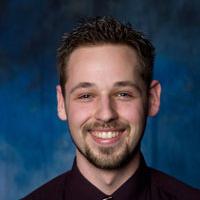Blair Gage
Why did you decide to pursue a graduate degree?
As an undergraduate I had the good fortune to do an 8-month co-op work term in Dr. Kieffer's lab where we investigated an adult stem cell population and its ability to form beta-cells. During this time I began to use a number of new and exciting technologies which got me quite hooked on stem cell science. I decided to pursue my graduate degree to continue the work I started as well as build my knowledge of new technologies.
Why did you decide to study at UBC?
I graduated from UBC/BCIT with my BSc in Biotechnology from the department of Microbiology and Immunology in 2008. During this time I realized that UBC is one of those rare universities which satisfies the old adage of "Location, Location, Location". Since I like to ski, fish for salmon, and enjoy the urban life, UBC and surrounding Vancouver’s mountains, oceans, and numerous venues make for a great University location.
What was the best surprise about UBC or life in Vancouver?
The best surprise of graduate life is that the science, while a 10 hour per day job, often leaves perfect time slots to go outside and sip a coffee on the grass. By doing this routinely with fellow graduate students I have enjoyed making a number of cherished friendships with people from around the world, or around the corner, while discussing the merits of a "Double-Double" from Tim Horton's or the classic Starbucks "Pikes-Place".
What do you hope to accomplish with your research?
Type 1 Diabetes (T1D) is characterized by an autoimmune destruction of pancreatic beta-cells. While multiple daily injections of insulin continue to save the lives of people with T1D, the development of cadaveric islet transplantation has greatly improved the health and livelihood of Type 1 diabetics. Our research aims to produce vast quantities of beta-cells in a laboratory setting in order to supplement the limited supply of transplantation quality islets allowing a surgical cure for T1D.
What has winning a major award meant to you?
Winning my NSERC and MSFHR awards has given me a chance to focus. Science is amazingly expensive. Knowing that I am no longer a financial burden to my supervisor means that if an experiment doesn’t work out I don't have that nagging thought that my work might be "too" expensive. The award also reminds me that the work I am doing is already thought of as promising by a series of the country’s prominent researchers.
What advice do you have for new graduate students?
I think that the time commitment for graduate studies is often overlooked; specifically, the effect this has on your friends (significant or otherwise) and family. While it is not always possible, try to prepare these people as well as yourself for some time apart so you can better cherish the time together.
